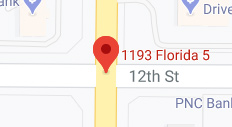ERCP
What is ERCP?
Endoscopic retrograde cholangiopancreatography (ERCP) enables the physician to diagnose problems in the liver, gallbladder, bile ducts, and pancreas.
The liver is a large organ that, among other things, makes a liquid called bile that helps with digestion. The gallbladder is a small, pear-shaped organ that stores bile until it is needed for digestion. The bile ducts are tubes that carry bile from the liver to the gallbladder and small intestine. These ducts are sometimes called the biliary tree. The pancreas is a large gland that produces chemicals that help with digestion and hormones such as insulin.
ERCP combines the use of X-rays and an endoscope, which is a long, flexible, lighted tube. Through the endoscope, the physician can see the inside of the stomach and duodenum, and inject dyes into the ducts in the biliary tree and pancreas so they can be seen on X-rays.
Unit 2
What is the Purpose of ERCP?
ERCP is used primarily to diagnose and treat conditions of the bile ducts, including gallstones, inflammatory strictures (scars), leaks (from trauma and surgery), and cancer. ERCP may be necessary to find the cause of jaundice, upper abdominal pain, or unexplained weight loss.
How to Prepare for ERCP Test?
Your stomach and duodenum must be empty for the procedure to be accurate and safe. You will not be able to eat or drink anything after midnight the night before the procedure, or for 6 to 8 hours beforehand, depending on the time of your procedure.
Also, the physician will need to know whether you have any allergies, especially to iodine, which is in the dye. You must also arrange for someone to take you home, you will not be allowed to drive because of the sedatives. The physician may give you other special instructions.
How is the Procedure Performed?
You will lie on your left side on an examining table in an X-ray room. You will be given some medication to numb your throat and a sedative to help you relax. The doctor will pass the endoscope into your mouth and navigate it through your esophagus, stomach and duodenum until it gets to the ducts of the biliary tree and pancreas.
You will then be turned to lie flat on your stomach, and the physician will pass a small plastic tube through the scope. Through the tube, the physician will inject a dye into the ducts to make them show up clearly on X-rays. X-rays are taken as soon as the dye is injected.
If the exam shows a gallstone or narrowing of the ducts, the physician can insert instruments into the scope to remove or relieve the obstruction. Biopsies may be taken for testing in a laboratory.
An ERCP takes 30 minutes to 2 hours. You may have some discomfort when the physician blows air into the duodenum and injects the dye into the ducts. However, the pain medicine and sedative should keep you from feeling too much discomfort. After the procedure, you will need to stay at the hospital for 1 to 2 hours until the sedative wears off. The physician will make sure you do not have signs of complications before you leave. If any kind of treatment is done during ERCP, such as removing a gallstone, you may need to stay in the hospital overnight.
What are the Risks?
ERCP is a very safe test and complications are rare. Possible complications of ERCP include pancreatitis (inflammation of the pancreas), infection, bleeding, and perforation of the duodenum.
You may have tenderness or a lump where the sedative was injected, but that should go away in a few days.
Although every effort is made to educate you on ERCP and take control, there will be specific information that will not be discussed. Talk to your doctor or health care provider about any concerns you have about ERCP.
Click on the below tabs to know more
Procedures
- Hernia RepairLaparoscopic Hernia Repair – TEP and TAPPNissen Fundoplication Surgery with Hiatal hernia repairHernia Repair — Open Surgery for Inguinal Hernia
- EndoscopyGastroscopyColonoscopyFlexible Sigmoidoscopy
- Adhesion
- Laparoscopic Cholecystectomy
- Pancreas Surgery
- Anti-reflux Surgery
- Gastrojejunostomy
- Splenectomy
- Appendicectomy
- Polypectomy
- Bowel Resections (Colectomy)
- Laparoscopic Surgery















